There is a common misconception that fashion is all about designing. Intricately woven fabrics stitched together to bring a masterpiece to life, elaborate prints on duchess satin to create spectacular, distinct designs that is distinguishable to a particular designer. True, designs make up the majority of the fashion industry. After all, without these creative pieces, there would be nothing at all to showcase and no products to sell.
It is without a doubt, however, that fashion relies on business to move. Without the act of trading, exchanging money for goods, there would be no capital to create future collections. There would be no force to push products into stores, no management to take care of production and human resource costs, no research and development to determine what works and what doesn’t. To the new designers with wide eyes and big hopes, this is the side they often neglect. They invest all of their faith and resources on the creative side while ignoring the aspect that will actually make their clothes move.
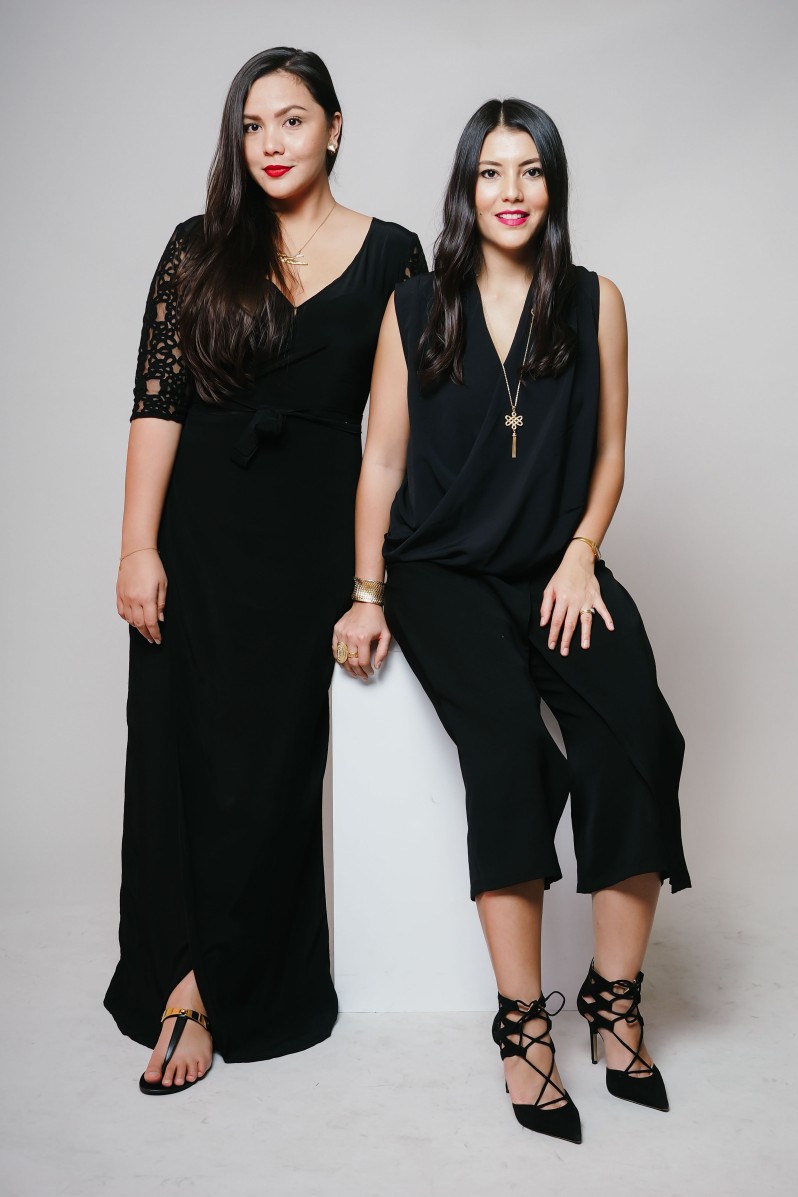
One fine afternoon, we got the chance to talk to the Paulina Katarina sisters to learn the truth about the fashion industry. Having gathered 30 years of experience from their parents’ garment factory, Ratna and Surya shows us just what is needed to run a fashion label. We catch these Bali-based fashion entrepreneurs fresh after their show at JFW 2015, as part of the CLEO Fashion Awards, where they showcased their latest Spring-Summer 2016 collection, Into The Deep.
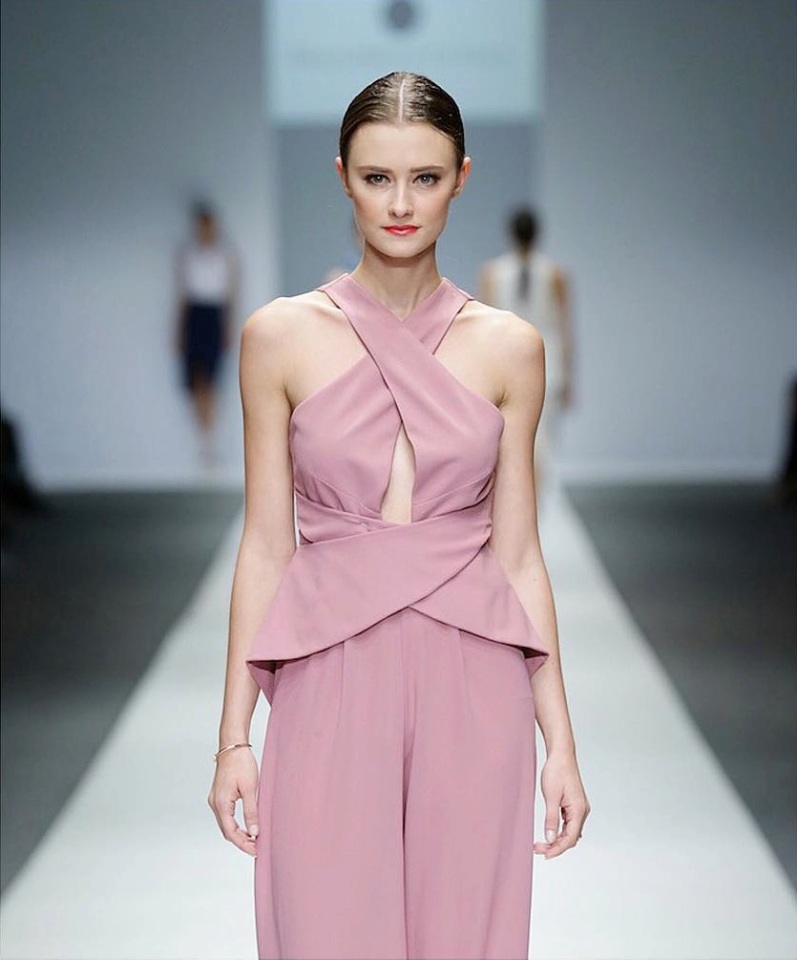
The sisters’ story started 4 years ago when they decided to break away from their parents’ textile manufacturing company to start their own label named after their combined middle names, Paulina Katarina. It was the perfect timing to start the brand, as there was a surge of starting your own labels at that time. “We’ve always loved making our own clothes so we wanted to try it out. We wanted to put some creativity into it and because we dealt with a lot of different labels [from our parents’ company] so we had an idea of the business side of fashion.”
The work is split into two parts: Ratna handles the creative side of Paulina Katarina and comes up with designs and samples, while as Surya handles the business side and manages production and marketing.
“Almost behind every really great designer, there is a business partner.
There is no successful brand that doesn’t have a strong business partner that’s running day-to-day operations. Because as a designer you’re so busy producing so many collections in a year, you don’t have time to run the day-to-day things.”
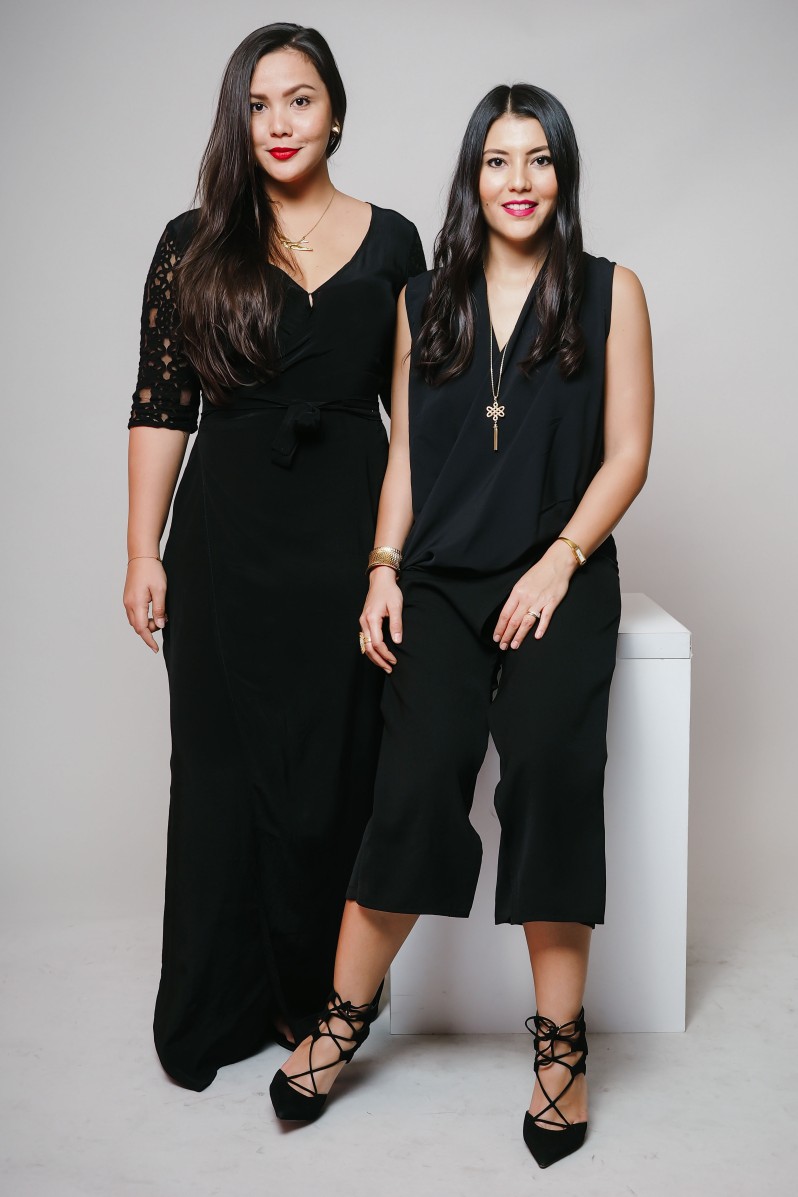
For their label, analyzing sales data is crucial as it directs what future collections will look like. The sisters analyze what sells, what doesn’t, and transforms that data into desirable pieces of clothing, which will eventually land in wardrobes of PK girls. Ratna would start working on the designs by herself, sketching ideas from her head and turning it into reality, before consulting with Surya on what the final collection will look like. “We really believe in data and see what sells the season before. We try to make something similar to that, or if it’s such a big seller, then we will continue making it in a different color, like an updated version, while adding on new styles that’s in trend that particular season.”
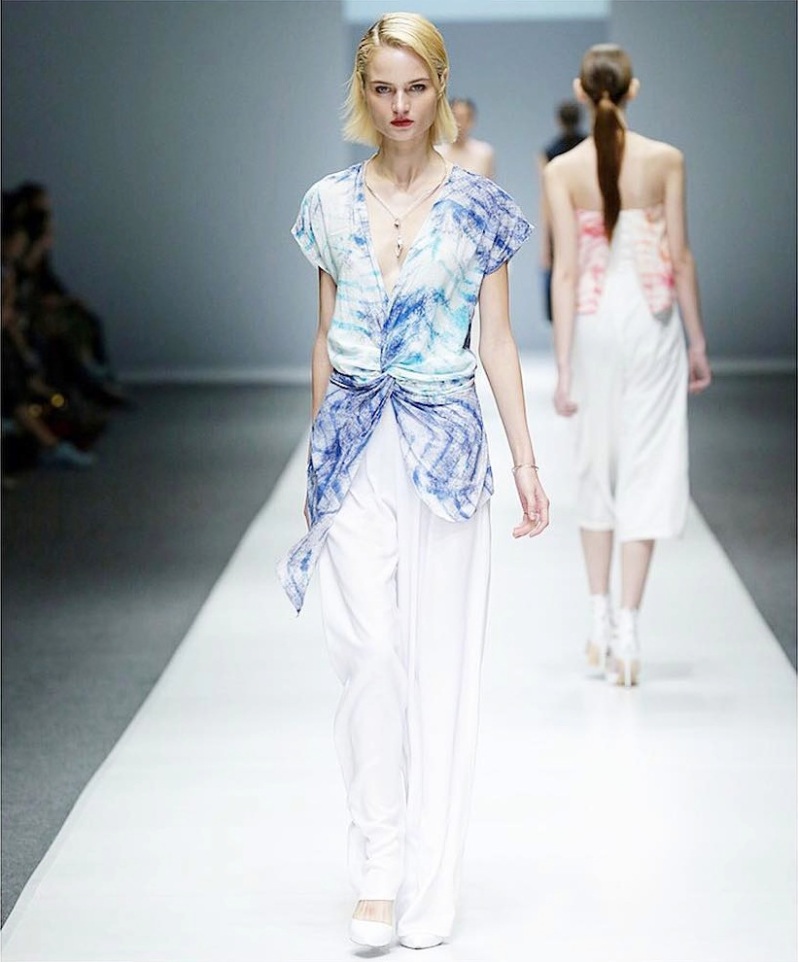
They also try to establish close relationships with customers. Reading and understanding your target market, and really knowing who your audience is will do wonders for you. “We try to be at every bazaar and showcase so we can talk to our buyers. They actually comment like, ‘Oh I love this but I’m not fond of so and so.’ From that as a designer we learn and make something out of it.”
Most fashion labels focus on planning their marketing strategy and leave production to an external manufacturer. PK prides itself in handling everything on their own, from manufacturing to marketing; it’s an all-encompassing workshop in their office. If an order is made in the morning for an out-of-stock item, they can roll out a new piece by afternoon because of their in-house production.
“If you don’t have a great team that can handle everything, there’s almost no point because you’re just consistently wasting money making these samples but no one is seeing. Marketing is extremely important because sometimes we have amazing products but when no one sees it, or when it doesn’t sell, there’s no point because you’re not going to have any money to make the next collection.”
There are a lot of emerging markets in Bali, although they’re not local. As a tourist island, the tiny province is flocked with Caucasians, mainly from Australia, and also various foreigners year in and year out. Most foreigners make the clothing pieces in Bali and sell it back in their motherland. PK itself features foreign styles that are not accustomed to Indonesia’s usual designs. It is full of beach-inspired clothing with long floor dresses and rompers, floral prints, and relaxed fits. Their measurements also go beyond the typical small Asian sizes, which allows them to cast a wider net for their target market.
“Some brands only do one size, which is easier, but we do all sizes. So for us, we need to make sure that dress looks good on a skinny girl and also a larger girl.”
It is rather difficult for this Bali-based fashion house as production costs keep increasing in their tiny island. PK tries as much to use local supplies but many textile productions have closed down because of rising costs. There are also a lot of fabrics that Indonesia can’t produce yet, like specific lace types, and even certain polyester types with prints. It doesn’t help either that Indonesia charges high import taxes for raw materials. The fashion industry is already a massive economic force for the country and it has so much potential to become bigger if the government had more lax import regulations.
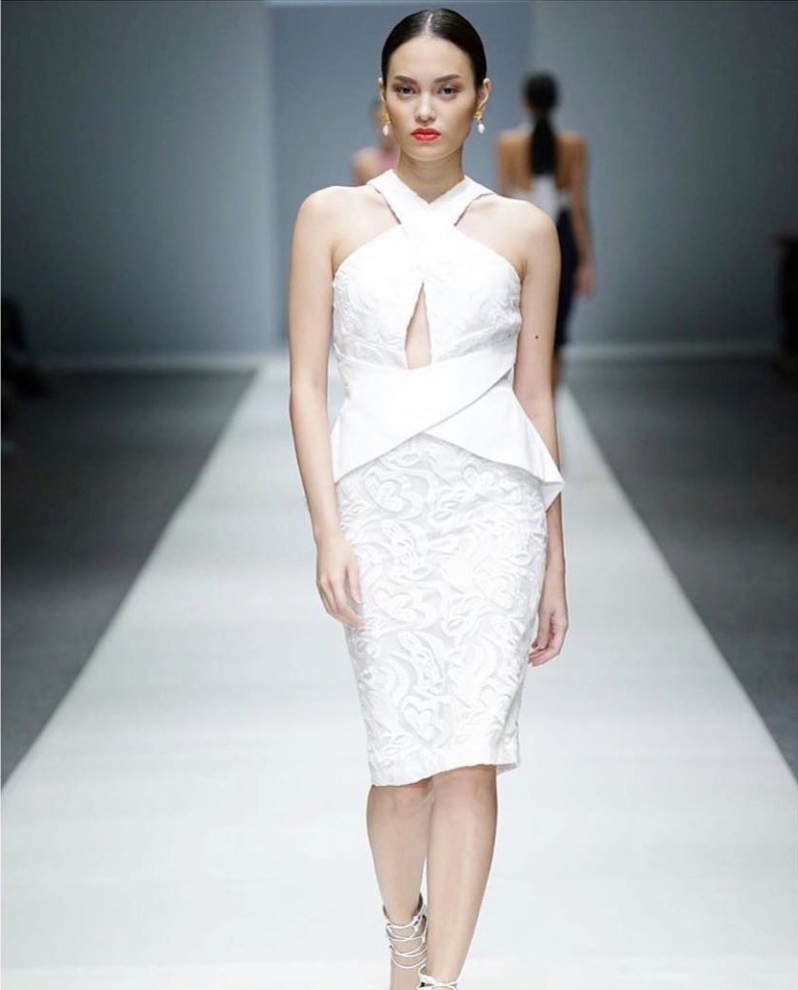
“We think there’s such a huge potential in Indonesia. When we first started the label 3-4 years ago, we were actually thinking of entering the international market without focusing on the Indonesian market. All the brands that we were producing in the textile manufacturing plant were almost entirely exporting their products so we thought maybe that’s where we should go. But then 2 years ago we saw that actually a lot of the sales came from within the country and a year ago, we decided to focus on Indonesia and give it our 100%. Since then the growth has been amazing!
It’s Asia’s time to rise and Indonesia has such a huge population with an increasing middle class. Their shopping power is really strong too and Indonesians just love to shop.”
Recently, there has been a surge in demand for local goods. A few years ago, Indonesians were plagued with the mindset that foreign goods were always better than local products. We take our shopping power and spend it on foreign markets, rather than enriching our own backyards. But that has changed over the past few years and it really is an exciting time for local brands to grow and prove what they are capable of.
Another trend that is currently on the rise is the use of ethnic wear. When asked who they would like to collaborate with, Surya didn’t hesitate on answering, “Any Batik designer.” The Balinese sisters would love to work with amazingly creative Batik prints and incorporate it into their fabric and cuts to make it more casual. They have previously incorporated kain Songket and Ikat into their Archipelago collection by printing these ethnic designs on to their usual fabric and cutting it into crop tops, making it lighter and appropriate for everyday wear. “The demand for these collections have been amazing so it would be really cool to work with a Batik designer”.

While talking to the Paulina Katarina sisters, one thing was obvious: these girls weren’t afraid to share what they know. From insider knowledge to their very own struggles in the industry, they resonated our brand philosophy of empowering each other. We caught them after their stint at the CLEO Fashion Awards and the adrenaline rush was still evident when we asked them about their experience.
“It was a great experience, we learned a lot from it. It was our first runway show ever so there’s a lot of things to think about. From the music choice to the video we put, to the models we used, the models’ shoes, and collaborating with different brands for the shoes and jewelry. You go in and know what it’s like to work with CLEO, what their support is like, what Femina group is like, and they really teach you how to do things and help out on things they can actually help out with. It’s a lot better than going in by yourself and making heaps of mistakes. It was a really priceless experience for us to be able to be mentored by all these people who’ve done it for the past 8-9 years.”

Each fashion label is unique and doesn’t necessarily share the same target market, which is why the PK sisters don’t believe in competing. There is no other brand like theirs, and they can’t replicate the soul of another brand. Through their stint at JFW, they’ve established great friendships with other designers and the media and hopefully will create a more conducive environment where labels can thrive, rather than viciously bringing down one another.
Their advice for startups is to work hard, stay focused, and if possible, try to get as much experience as possible before starting your own brand. It can be interning at any fashion house, clothing brands, or even in the media.
“Your relationship with the media is priceless. If you already have connections with them, it’s only going to make it easier when you look forward. Network as much as you can with people in the industry”.
For them, going to business school was the best decision they’ve made in their career. They’ve already had experience from the 30 years of garment manufacturing, so having a business side really helped them look ahead in creating a sustainable business.
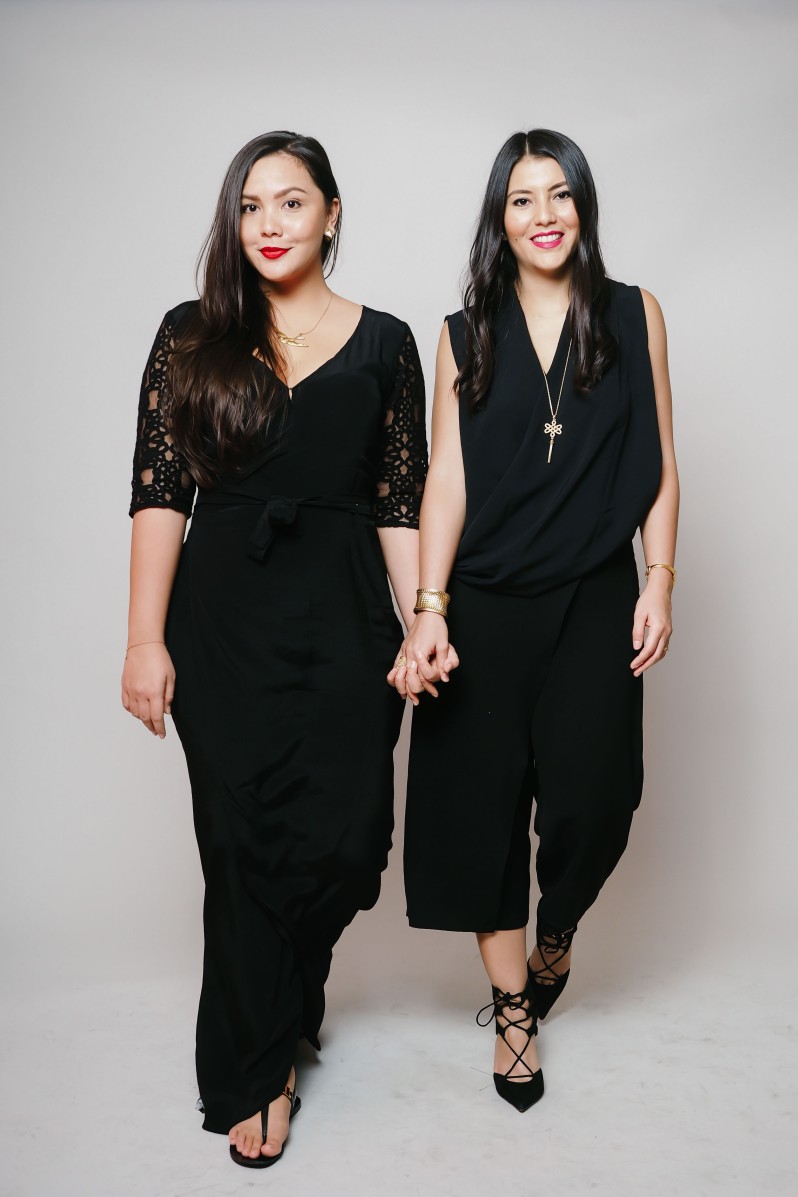
At the end of the day, the Paulina Katarina sisters believe in having fun with fashion. “It’s about looking great and feeling amazing. There’s no point in going out there with the trendiest thing but you don’t feel comfortable. It’s great to follow trends and everything but for us,
it’s about following trends that suit you, your personality, and your body. Be yourself.”
There is so much potential waiting to be unlocked for the Bali-based brand. They have a cult following in Indonesia, stockists in Singapore, and bulk orders from Australia. Even without focusing too much on the international market, they’re already generating demand from foreign shores and establishing themselves one collection at a time. In 5 years, the PK sisters hope to have a flagship store in Bali and maybe Jakarta, tackled the Indonesian market, and will be gearing up to go international. We’re sure with their humble personalities and coordinated, heavily researched sets they will go further than they imagined!
Shop Paulina Katarina’s collection here x


